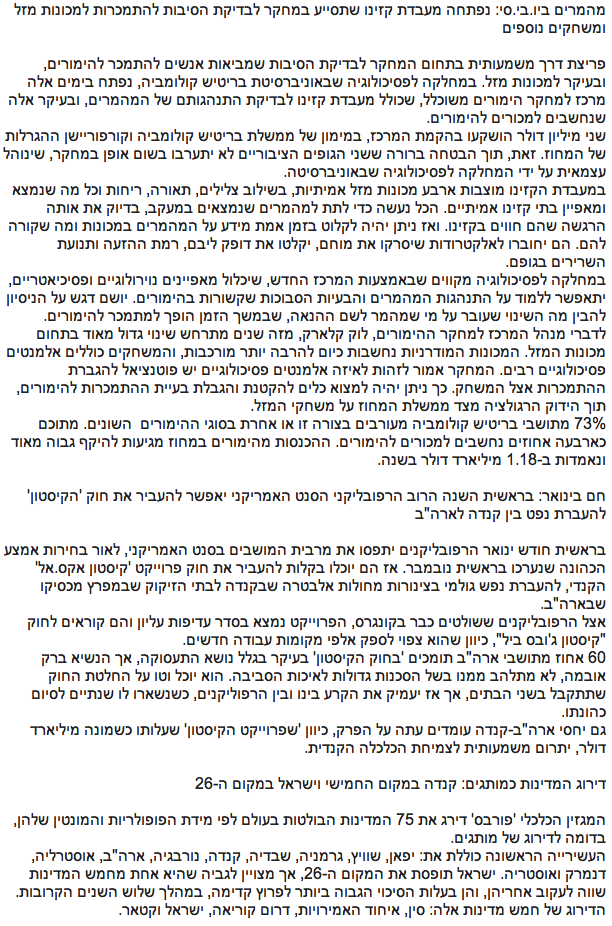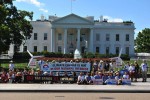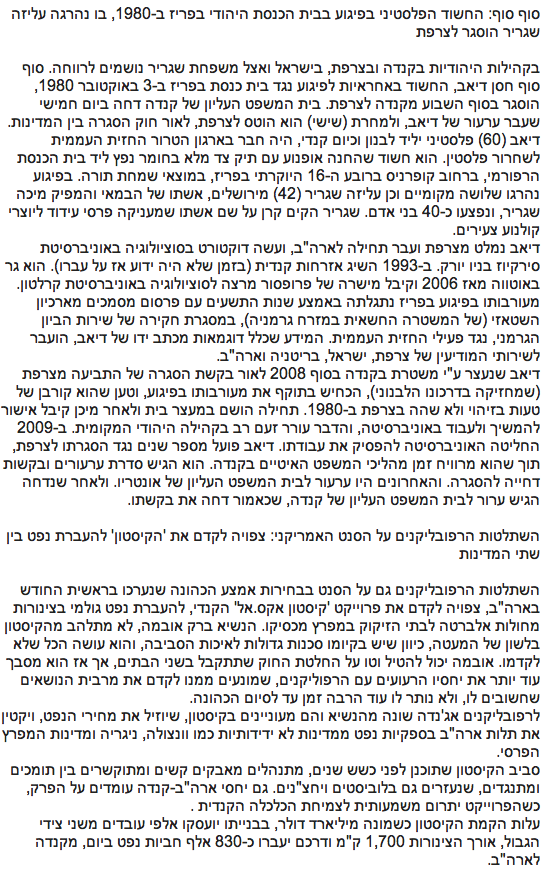The story of Chanukah is a narrative of the victory of a small group of righteous fighters against a powerful empire. It is a redemptive story of standing for one’s beliefs (and existence) and triumphing in the end.
The end of 2016 is a time when redemptive stories are even more welcome and the decision by the U.S. government last weekend to accede to the defiance of protesters in North Dakota is just such a story. Plans to run an oil pipeline through a cemetery and under a water reservoir near the Standing Rock Sioux Reservation were kiboshed. This doesn’t mean an alternative route won’t see the project completed, but it does alleviate the immediate fears the people had of the potential destruction of their water supply and further desecration of sacred sites, some of which have already been bulldozed.
The example of the Standing Rock Sioux and their allies from all over the country who stood up to the oil company is already being held up as a model for British Columbians, many of whom spent the weekend fuming over an announcement by Prime Minister Justin Trudeau. The prime minister declared that cabinet had approved the Kinder Morgan Trans-Mountain pipeline – which would see the number of tankers transporting bitumen from Burnaby, through Burrard Inlet, to Asia, increase to 34 per month from five – as well as another pipeline to the United States, while rejecting the Northern Gateway pipeline, which would have sent diluted bitumen to Asia via northern British Columbia. The incongruity of the decision – that the government recognizes the pristine fragility of the northern coast, but not that of the southern coast – is among the causes of outrage. Other concerns involve larger global issues of fossil fuels and the range of options that could, if we are going to use this non-renewable resource, at least reduce the negative environmental impacts.
Ahavat ha’beriot, love for (God’s) creation, is at the heart of Jewish identity. There is also the commandment to not stand by the blood of your neighbor; that is, do not behave passively in the face of violence toward others. While there was violence at Standing Rock, the greater threat was to the livelihood of the community there, based on the necessity of potable water. Likewise, the potential for ecological disaster as a result of the increased tanker traffic along Vancouver’s coast could destroy much creation, while the commitment to non-renewable fuels exemplified by the pipeline infrastructure will have global consequences.
Protecting creation is at the heart of First Nations identity as well, as was so articulately expressed at Standing Rock and which has also been demonstrated by reaction to Western Canadian pipelines, much of the opposition to which is led by indigenous people. Among the most heartening aspects of the Standing Rock story was the solidarity between indigenous and non-indigenous peoples.
Even if we disagree on this issue – we who drive cars or otherwise exploit non-renewable resources should demonstrate commitment to reducing emissions with our actions as well as our words – the lesson of Standing Rock goes beyond this single topic.
The United States and much of the world is experiencing a political upheaval. Particular challenges will emerge from the stunning U.S. election result, which handed the White House and both chambers of Congress to a party that rejects much of what has been termed “progressive” – environmental regulations, equality for women and minorities, protections for workers and a long list of other advances that cannot now (if they ever could) be taken for granted.
In the face of a Washington that is uniformly Republican, there may be a renewed need for public demonstrations that advance alternative viewpoints. People stood up at the coincidentally but aptly named Standing Rock. People may have to do the same in many places, including Burrard Inlet, during the coming years.
We need not be modern Maccabees to take such a stand. It is highly unlikely that any of us will see our lives threatened for opposing a pipeline, or acting within the law to advance or oppose some other viewpoint. Conversely, if action is not taken, if voices do not coalesce to demand alternatives to our world’s rapacious appetite for fossil fuels, all of creation may well be threatened.




